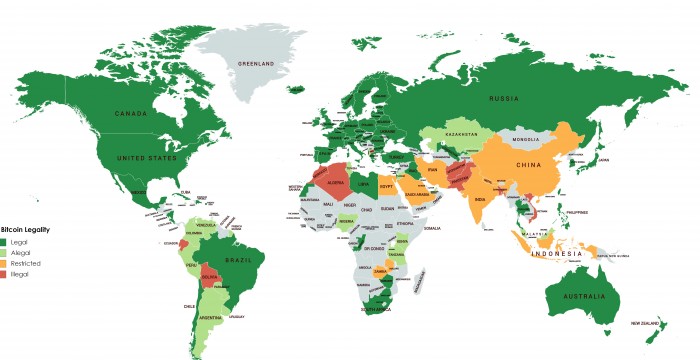Africa is still a developing continent, but new technology could give it the ability to bypass several generations’ worth of development. A good example of this kind of leapfrogging is how many developing countries skipped the “fixed-line” telecommunication phase of the 20th century and moved straight on to mobile phone usage. In Africa, blockchain could provide a similar leap into the future.
The blockchain essentially transforms the way trade is conducted, and recorded. A simple way of understanding blockchain is to imagine a long and comprehensive record of ownership. For example, let’s assume you own a piece of land and your ownership of this land is recorded on a ledger. When you sell this land, both your original ownership title, and the new owner’s title now appear on the ledger. If the new owner then sells a portion of the land, the ledger now branches off, to begin a whole new chain of ownership. But at all times this can be traced back to you, the original owner of the original piece of land, and every subsequent owner. Now imagine that this ledger is not stored by any single bank or regulator, but is on a completely decentralised platform, like an online network, which can’t be destroyed by anyone. This is a blockchain.
In line with blockchain technology, no third-party regulatory body or other authority controls the record of transactions. Rather, these are stored across a network of devices, on any computer around the world. On the surface, then, the blockchain appears to be a transparent and efficient way to trade, essentially cutting out the middlemen (such as banks) which traditionally add cost to trading. But it also provides security through its unalterable system of recording transactions which means that it can be used for any large database of exchange in a variety of industries.
The opportunities presented by blockchain are significant, especially if adopted by public officials in a regulated environment. Governments in African countries willing to invest in the technology can leapfrog previous inefficient systems and can lead the way for the rest of the world by using blockchain technologies in public service industries.
Many African countries are undecided about the blockchain, but some countries have fully welcomed the technology either in government or through private businesses. Earlier this month, Mr. Vicente Bagiire Waiswa, the ICT Ministry permanent secretary in Uganda, announced that the “government is going to use blockchain technology where it is appropriate to provide seamless services to the general public.” Uganda is also set to hold the Africa Blockchain Conference on May 23 and 24 2018 which is running under the theme of The role of Blockchain Technology in Africa’s transformation.
Some companies are already experimenting with how to transform Africa with blockchain. During the March 2018 elections in Sierra Leone, a Swiss company, Agora, used its technology to test whether the blockchain could contribute to the transparency of national elections. Although the results differed slightly from the official manual count, this election observation on the blockchain shows one of the number of ways that the technology can improve the current voting system, and ideally, ensure transparent and trustworthy elections.
Another company utilising blockchain capabilities in Africa, is Golix, based in Zimbabwe. Golix has introduced the first Bitcoin ATM in Zimbabwe where locals can insert US dollars into the ATM to buy Bitcoin. This not only gives anybody access to an e-wallet and Bitcoin, but also provides a secure entry into international markets from an economy which has seen many cash shortages and hyperinflations.
The blockchain hype is prevalent all around Africa with the most Google search trends for the blockchain worldwide coming from Ghana. Ghana is also home to the non-profit organisation Bitland, which is aiming to create an “immutable, transparent and universal,” land registry. Currently, Ghana does not have a reliable land registry which can lead to land disputes, the inability to prove ownership to banks and other barriers to development. Bitland hopes to fill this gap in Ghana before expanding to other African countries.
Whether the blockchain will be Africa’s next leapfrog technology, ultimately, depends on government response to the opportunities and challenges of the technology. The success of the first blockchain startups may present a preview into future possibility, but wholescale adoption will likely require government support. Hopefully, Uganda’s welcoming stance might set the stage for other African countries to follow suit.
More on technology and design:
Africa could be the leapfrog continent, says Sir David Adjaye
VR tool takes viewers inside Gaza to create empathy for those affected by oppression and war







